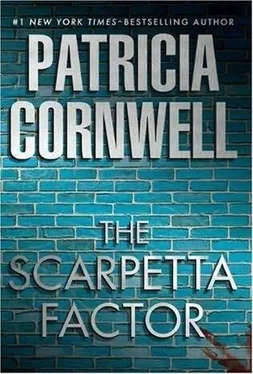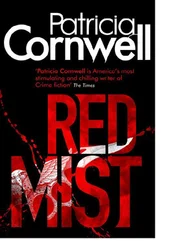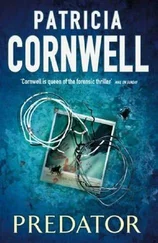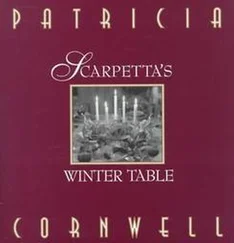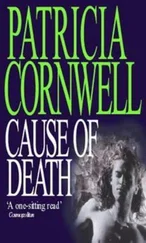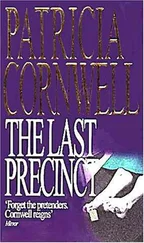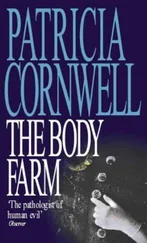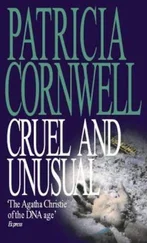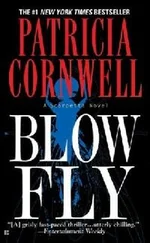“I believe you always tell them that.”
“Another detail of interest. Her socks were on the wrong feet,” Scarpetta said.
“How can socks be on the wrong feet? Do you mean inside out?”
“Running socks designed anatomically correctly for the right and left feet, and actually designated as such. An L on the left sock, an R on the right. Hers were on backwards, right sock on the left foot and left sock on the right.”
“Possible she did that herself, didn’t notice when she was getting dressed?” Dr. Edison was putting on his suit jacket.
“Possible, of course. But if she was that particular about her running attire, would she put her socks on the wrong feet? And would she be out running in the rain and cold and not wearing gloves, not wearing anything to keep her ears warm, and no coat, just a fleece? Mrs. Darien says Toni hated running in bad weather. She also can’t account for the unusual watch Toni had on. An oversized black plastic digital watch with the name BioGraph stamped on it, possibly collects some type of data.”
“You Google it?” Dr. Edison got up from his desk.
“And had Lucy do a search. She’ll look into it further after DNA’s done with it. So far no such watch or device called a BioGraph, it appears. I’m hoping one of Toni’s doctors or someone else she knew might have an idea why she was wearing it and what it is.”
“You do realize your part-time is turning into full-time.” He picked up his briefcase and retrieved his coat from the back of the door. “I don’t think you’ve been back to Massachusetts once this entire month.”
“It’s been a little busy here.” She got up and started collecting her belongings.
“Who’s running your railroad there?”
“The train tracks are fast leading back to Boston,” she said as she put on her coat and they walked out together. “A repeat of the old days, which is a shame. My northeastern district office in Water-town will be shut down, probably by summer. As if the Boston office isn’t overwhelmed enough.”
“And Benton ’s going back and forth.”
“The shuttle,” Scarpetta said. “Sometimes Lucy gives him a lift on her helicopter. He’s been here a lot.”
“Nice of her to help out with the watch, the BioGraph. We can’t afford her computer skills. But when DNA’s done with it and if Jaime Berger agrees, if there’s some sort of data in whatever the device is, I’d like to know what. I have a meeting at City Hall in the morning, in the bull pen with the mayor, et al. Our business is bad for tourism. Hannah Starr. Now Toni Darien. You know what I’m going to hear.”
“Maybe you should remind them that if they continue to cut our budget, our business is going to be worse for tourism because we’re not going to be able to do our job.”
“When I first started here in the early nineties, ten percent of all homicides in the country were committed right here in New York,” he said as they walked through the lobby, Elton John playing on the radio. “Twenty-three hundred homicides my first year. Last year, we had fewer than five hundred, a seventy-eight percent decrease. Everybody seems to forget that. All they remember is the latest sensational slaying. Filene and her music. Should I take away her radio?”
“You wouldn’t,” Scarpetta said.
“You’re right. People work hard here, and there’s not much to smile about.”
They emerged into a cold wind on the sidewalk, First Avenue loud with traffic. Rush hour was at its peak, taxis careening and honking, and the wailing of sirens, ambulances racing to the modern Bellevue hospital complex several blocks away and to NYU’s Langone Medical Center next door. It was after five and completely dark out. Scarpetta dug in her shoulder bag for her BlackBerry, remembering she needed to call Benton.
“Good luck tonight,” Dr. Edison said, patting her arm. “I won’t be watching.”
Dodie Hodge and her Book of Magick in its black cover with yellow stars. She carried it with her everywhere.
“Spells, rituals, charms, selling things like bits of coral, iron nails, small silk bags of tonka beans,” Benton was telling Dr. Clark. “We had some real issues with her at McLean. Other patients and even a few hospital employees buying into her self-professed spiritual gifts and seeking her counsel and talismans for a price. She claims to have psychic abilities and other supernatural powers, and as you might expect, people, particularly those who are troubled, are extremely vulnerable to someone like that.”
“Seems she didn’t have psychic abilities when she stole those DVDs from the bookstore in Detroit. Or she might have predicted she’d get caught,” Dr. Clark said, moving along the road to truth, the destination just ahead.
“If you ask her, she didn’t steal them. They were rightfully hers because Hap Judd is her nephew,” Benton said.
“And this relationship is real, or another falsehood? Or, in your opinion, a delusion?”
“We don’t know if she’s related to him,” Benton answered.
“Seems like that would be easy enough to find out,” Dr. Clark said.
“I placed a call to his agent’s office in L.A. earlier today.” Benton ’s statement was a confession. He wasn’t sure why he’d just offered it, but he’d known he would.
Dr. Clark waited, didn’t fill the silence, his eyes on Benton.
“The agent didn’t confirm or deny, said she wasn’t in a position to discuss Hap Judd’s personal life,” Benton continued as the wave of anger came back, only bigger this time. “Then she wanted to know why I was asking about someone named Dodie Hodge, and the way she said it made me think she knew exactly who I was talking about, even though she was pretending otherwise. Of course, I was extremely limited in what I could divulge, simply said that I’d been given information and was trying to corroborate it.”
“You didn’t say who you were or why you were interested.”
Benton ’s silence was his answer. Nathan Clark knew him very well, because Benton had allowed it. They were friends. He might be Benton ’s only friend, the only one Benton permitted to enter his restricted areas, the only one other than Scarpetta, and even she had her limits, avoided areas she was afraid of, and this was all about the area she feared most. Dr. Clark was drawing the truth out of Benton, and Benton wasn’t going to stop it. It needed to be done.
“That’s the problem with being former FBI, isn’t it?” Dr. Clark said. “Hard to resist going undercover, getting information any way you can. Even after how many years in the private sector?”
“She probably thought I was a journalist.”
“That’s how you identified yourself?”
No answer.
“As opposed to stating who you are and where you were calling from and why. But that would have been a HIPAA violation,” Dr. Clark went on.
“Yes, it would have.”
“What you did wasn’t.”
Benton was silent, allowing Dr. Clark to go as far as he wanted.
“We probably need to have a meaningful discussion about you and the FBI,” Dr. Clark said. “It’s been a while since we talked about those years when you were a protected witness and Kay thought you’d been murdered by the Chandonne family crime cartel, the darkest of times, when you were in hiding, living a horror beyond what most people can fathom. Perhaps you and I should explore how you’re feeling these days about your past with the FBI. Maybe it isn’t past.”
“That was a long time ago. Another life ago. Another Bureau ago.” Benton didn’t want to talk about it and he did. He allowed Dr. Clark to keep going. “But it’s probably true. Once a cop.”
“Always a cop. Yes, I know the cliché. I venture to say this is about more than clichés. You’re admitting to me that you acted like a law enforcement agent today, a cop, instead of a mental health practitioner whose priority is the welfare of his patient. Dodie Hodge has roused something in you.”
Читать дальше
